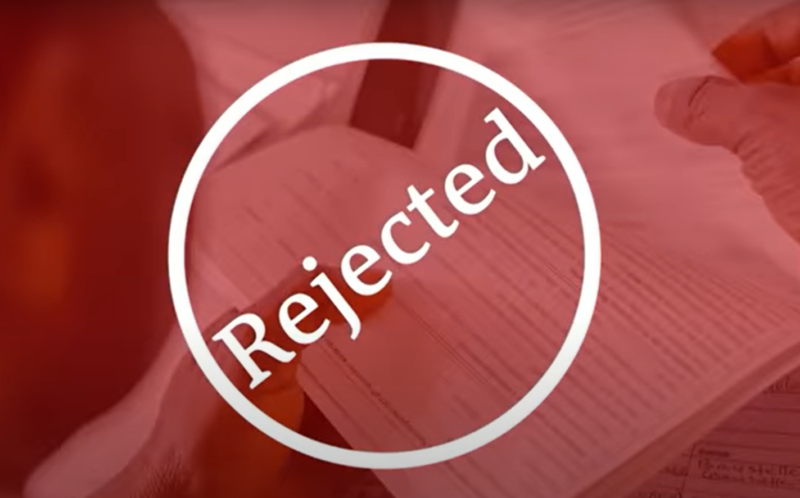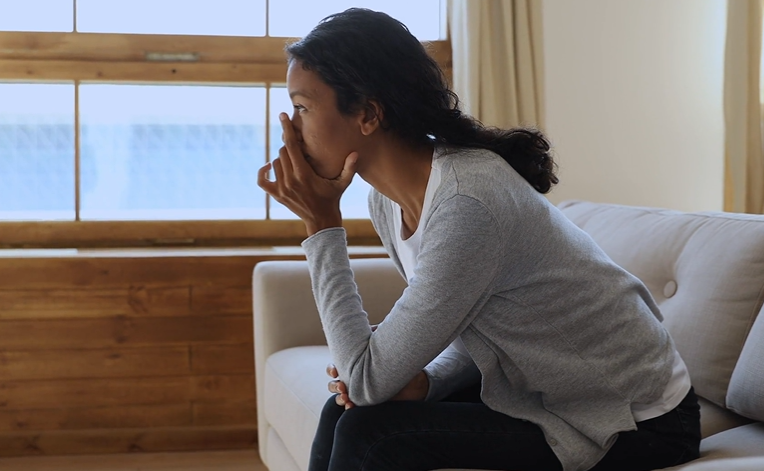When we think of trauma, our minds often drift to personal tragedies, natural disasters, or violent events. Rarely do we consider the trauma inflicted by systemic injustices such as racism, sexism, or discrimination based on one’s sexual orientation. Injustice trauma can be as devastating as any other form of emotional or physical trauma.
This blog post dives into the complex world of injustice trauma, unraveling its examples, effects, and how affirming care can provide a constructive path to healing.
Defining Injustice Trauma
Injustice trauma is a form of psychological distress resulting from experiences of systemic inequity or unfair treatment. Unlike personal traumas, which often stem from specific events involving individual actions, injustice trauma emanates from the broader environment of systemic prejudices and stereotypes.
Types
- Racial Injustice: Stemming from systemic racism, this form of trauma affects people based on their racial identity.
- Gender-Based Injustice: This includes traumas like sexism or misogyny affecting people based on their gender.
- Socioeconomic Injustice: Discrimination based on economic status can also contribute to trauma.
- Sexual Orientation-Based Injustice: Discrimination against LGBTQ+ individuals falls under this category.
How It Differs from Other Traumas
Injustice trauma sets itself apart from other forms of trauma because it’s less about a single incident and more about a continuous experience. Unlike traumas that may emerge from natural disasters or accidents, the suffering here is deliberately inflicted, whether consciously or subconsciously, by societal norms and systems.
Examples
The theory behind injustice trauma is expansive, covering a range of experiences. Here, we delve into specific examples to better understand its insidious nature.
Systemic Racism
Systemic racism doesn’t just manifest in overtly violent acts like hate crimes. It’s in the little things, too: racial profiling, unequal opportunities, microaggressions, and racial slurs. These everyday experiences contribute to a constant state of vigilance and stress for people who are victims of systemic racism.
Gender Inequality
Sexual harassment, pay disparity, body shaming, and even the prevalent ‘boys will be boys’ narrative contribute to gender-based injustice trauma. The persistence of these inequalities induces stress, fear, and helplessness among those who identify as women or non-binary.
Discrimination based on Sexual Orientation
The journey of coming out as a non-heterosexual individual can be fraught with extreme stress and anxiety, mainly due to societal attitudes. Subtle discrimination, like the heteronormative bias in workplaces, schools, or within families, can have a long-term impact on mental health.
The Psychological Effects
Injustice trauma doesn’t just vanish when the triggering event ends; it often leaves a long-lasting impact on one’s mental health.
Emotional Repercussions
- Depression: The ongoing struggle with injustice can lead to feelings of helplessness and despair.
- Anxiety: Constant vigilance in an unjust society can develop into anxiety disorders.
- Anger: Frustration over systemic inequalities can result in unresolved anger, affecting interpersonal relationships.
Cognitive Impact
- Reduced Self-Esteem: Continuous exposure to injustice can make one internalize prejudice, reducing self-worth.
- Impaired Concentration: The mental exhaustion from coping can affect focus and productivity.
- Hyper-Vigilance: One may become excessively alert to signs of danger, leading to constant stress.
Affirming Care and Healing
The challenges posed by injustice trauma demand unique therapeutic interventions. Thankfully, affirming care offers a promising pathway toward healing.
Recognizing the Need for Unique Treatment
Traditional therapy models often lack the cultural competence needed to treat injustice trauma effectively. Affirming care, however, recognizes the unique experiences and challenges faced by individuals suffering from this kind of trauma.
Actionable Strategies
- Cultural Competency Training for Caregivers: Educating healthcare providers to be culturally sensitive is a vital first step.
- Community Support: Group therapy and community organizing can empower individuals to confront systemic issues collectively.
- Mindfulness Practices: Mindfulness can equip individuals with the tools to manage the emotional and psychological distress caused by injustice.
Intersectionality in Injustice Trauma
In our discourse about injustice trauma, it’s important not to overlook the principle of intersectionality—the idea that different forms of social stratification and discrimination are interconnected.
The Overlapping Layers
A woman of color, for example, doesn’t just face sexism or racism separately; she experiences them in a unique blend that aggravates her trauma. Discrimination based on sexual orientation can further intersect with these experiences, creating an even more complex form of trauma. In essence, an individual can be impacted by multiple forms of injustice simultaneously, each compounding the effects of the other.
Challenges in Treatment
This complexity presents a challenge for treatment, as traditional models often don’t account for the multi-dimensional nature of intersectional trauma. Addressing one form of discrimination while neglecting another will not yield a holistic healing process. Therapists and caregivers must be trained to recognize the overlapping layers of trauma and tailor their interventions accordingly.
Why Acknowledging Intersectionality Matters
- Enhanced Sensitivity: Caregivers who understand intersectionality are better equipped to provide personalized treatment plans.
- Holistic Healing: Addressing all aspects of one’s identity can lead to more sustainable healing.
- Greater Equity: Recognizing intersectionality is crucial for advancing social justice and equity by highlighting the complexity of experiences within marginalized communities.
Prevention and Social Responsibility
While affirming care focuses on healing, prevention is equally crucial. Injustice trauma is largely systemic, and tackling it requires a collective societal effort.
Collective Accountability
It’s not just the responsibility of the victims of injustice trauma to heal themselves. Society at large must participate in dismantling the systems that perpetuate these traumas. This includes voting for equitable policies, actively participating in community activism, and educating oneself and others.
Practical Steps for Prevention
- Education: Implementing curriculums that teach children about diversity, inclusivity, and the history of social injustices.
- Policy Changes: Advocating for and supporting policies that aim to reduce systemic inequality, such as criminal justice reform or equal pay acts.
- Individual Actions: Everyday actions like calling out racism, sexism, or any form of discrimination also contribute to a larger culture shift.
The Role of Allies
The journey towards a just society cannot be made by marginalized communities alone. Allies, those who don’t experience these forms of trauma but support equality, have a significant role to play. From attending protests to amplifying the voices of those less heard, the collective power of people can combat the roots of injustice trauma.
The Road Ahead: What’s Next?
Understanding and combating injustice trauma is a journey that requires the effort of individuals, healthcare systems, and society at large.
Future Research
In the scientific realm, we need more research focused on understanding the nuanced experiences and needs of those suffering from injustice trauma. This could guide more effective treatment options and potentially lead to the development of preventative measures.
Public Awareness
Raising public awareness about injustice trauma through education, media, and community outreach can remove the stigma attached to it and promote a culture of empathy and understanding.
Policy and Legislation
Systemic change often requires legislative action. Continued advocacy for policies that address social inequalities can pave the way for a society where injustice trauma is a thing of the past.
FAQs
What are the effects of Injustice Trauma?
The effects can range from increased physical and mental health concerns like anxiety, depression, and PTSD to a lack of trust in professionals and authority figures, feelings of helplessness, and negative beliefs about oneself or others.
Can Injustice Trauma lead to PTSD?
Yes, it can lead to post-traumatic stress disorder (PTSD). Marginalized groups are statistically more likely to be affected by this condition.
How is Injustice Trauma often overlooked?
Many people who experience it are gaslit or overlooked, which further exacerbates the emotional toll it takes. This makes it crucial to bring awareness and a no-tolerance policy to injustice.
How can one take their power back after experiencing Injustice Trauma?
Speaking to a mental health professional can help individuals cope with and navigate the effects. Therapy can help in processing grief, working through emotions, and finding healthy coping skills.
What should one look for in a mental health professional for treating Injustice Trauma?
It’s important to find a professional who is trauma-informed and specializes in the group you are a part of. For example, if you are a part of the LGBTQIA+ community, look for a therapist who is versed in working with and understanding the experiences of this community.
Is it okay to switch therapists if the current one is not a good fit?
Absolutely. It’s crucial to find someone you are personally comfortable with, even if it means switching therapists or treatment centers.
What role do societal beliefs play in Injustice Trauma?
Societal beliefs can exacerbate the effects of injustice trauma. For example, due to societal beliefs about gender, an abuse victim may be overlooked in the justice system and may not be taken seriously.
How can one find more information and treatment options for Injustice Trauma?
Organizations like Emerald Isle Health & Recovery offer a range of services, including individual therapy, inpatient treatment, and outpatient treatment services for mental health and addiction related to injustice trauma.
Final Words
Injustice trauma is a pressing but under-recognized issue with significant emotional and cognitive repercussions. Understanding its various forms, acknowledging its psychological impact, and exploring avenues like affirming care for treatment can pave the way for a more equitable and empathetic society. We’re all part of this ecosystem of humanity, and only by acknowledging the pain of its most marginalized can we hope to heal as a whole.
Related Posts:
- Symptoms, Causes and Effects of Chronic Depression:…
- Major Side Effects Of Eating Too Many Cashews -…
- Trauma, Triggers and Metal Health: From Surviving to…
- What's the Connection Between Fear, Trauma, and Anger?
- All Disadvantages of Drinking Lemon Water Daily -…
- How Childhood Trauma Affects Us as Adults - Healing…


















